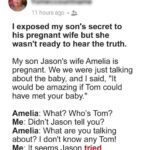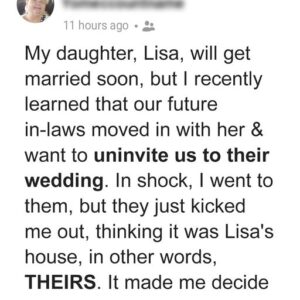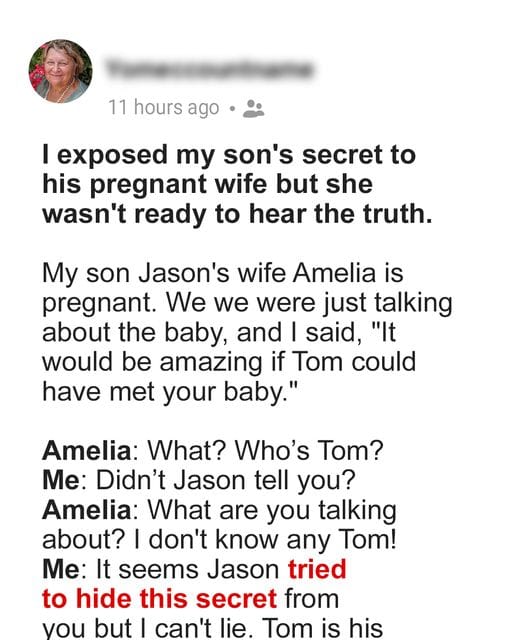Anna had always taken pride in her role as a mother. She had three wonderful children, and her eldest daughter, Lisa, was about to get married. As a parent, Anna had always dreamed of being there for all of her children’s important life events, especially their weddings.
Lisa’s engagement to her fiancé brought excitement and anticipation to the entire family. The young couple had decided to host a party with their future in-laws to celebrate the upcoming wedding. It was meant to be a joyous occasion, a chance for both families to bond and share in the happiness of the engaged couple.
However, as the party unfolded, Anna noticed that something was amiss. Her husband and her other children seemed increasingly upset as the evening went on. She watched as they exchanged worried glances and whispered amongst themselves. The atmosphere, once filled with celebration, had become tense and uncomfortable.
Anna couldn’t ignore the growing unease in her family and decided to investigate the source of their distress. She approached her husband and asked him what was going on. Reluctantly, he confessed that they had overheard a conversation between Lisa and their future in-laws.
According to Anna’s husband, Lisa and her fiancé’s parents had been discussing the wedding guest list, and it had come to light that Anna and her family were not on it. The shock and disappointment of hearing this news had left Anna’s husband and children feeling hurt and excluded.
Anna was livid. How could Lisa, her own daughter, make such a decision without even discussing it with her parents? The thought of not being present at her daughter’s wedding was heartbreaking, and Anna couldn’t understand why Lisa had chosen to keep them out of this important event.
Determined to address the issue and find a resolution, Anna decided to pay a visit to her future in-laws the following day. She hoped that a calm and honest conversation would help them understand the significance of including her family in the wedding plans.
However, when Anna arrived at their doorstep, she was met with a cold reception. Lisa’s future in-laws refused to let her inside, claiming that they believed Lisa was the sole owner of the house. Anna was shocked by their response, as she knew that she and her husband had purchased the property years ago.
It became clear that there was a misunderstanding regarding the ownership of the house. Lisa’s future in-laws assumed that she was the homeowner, while Anna knew that she and her husband held the deed to the property.
Anna tried to explain the situation to them, but her words fell on deaf ears. They were convinced that Lisa had the final say in the matter, and they were determined to stand by her decision, even if it meant excluding Anna and her family from the wedding.
As Anna left their home, she couldn’t help but feel a deep sense of frustration and sadness. The misunderstanding had not only strained their relationship but had also left her uncertain about her role in her daughter’s wedding.
Anna realized that she would need to find a way to rectify the situation and ensure that her family could be a part of Lisa’s special day. She knew that open and honest communication would be key to resolving the misunderstanding and reestablishing the bond between both families.










